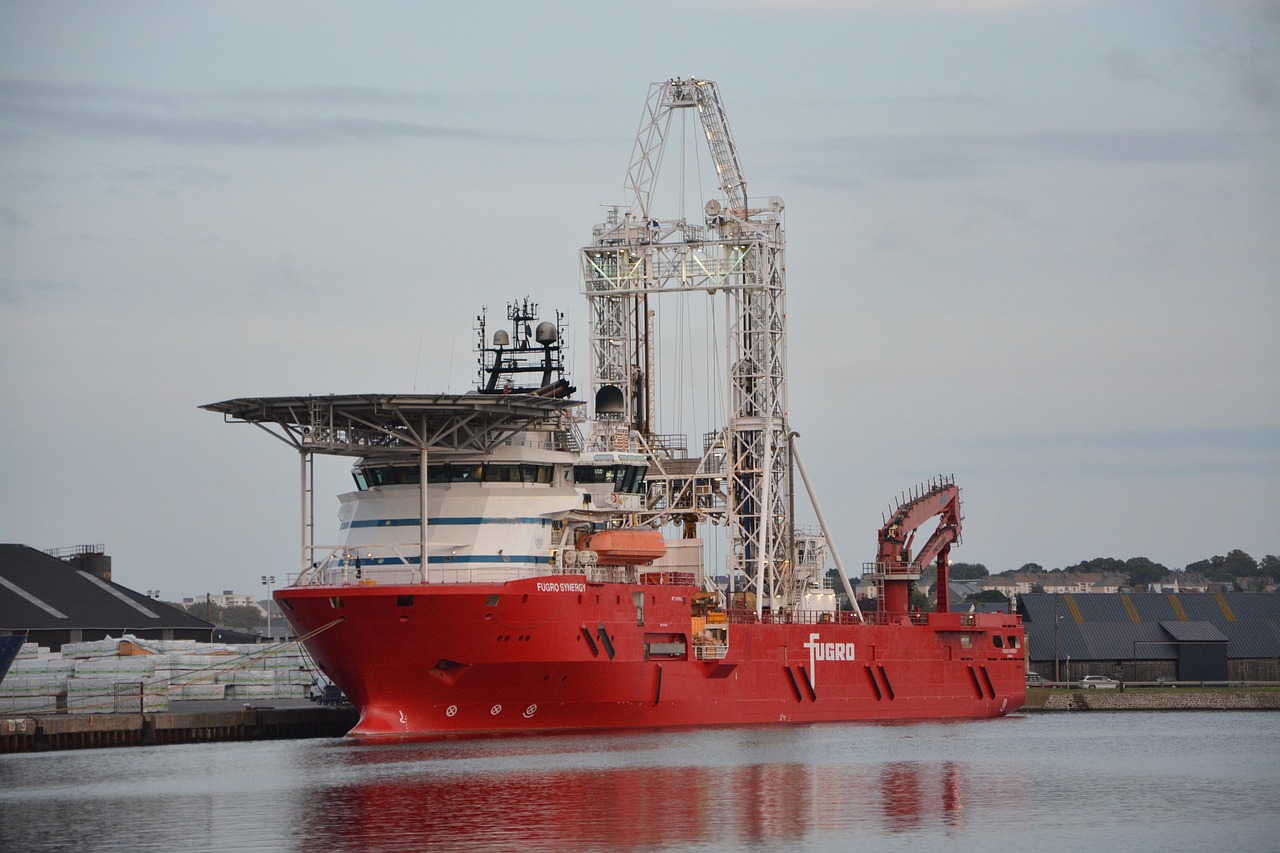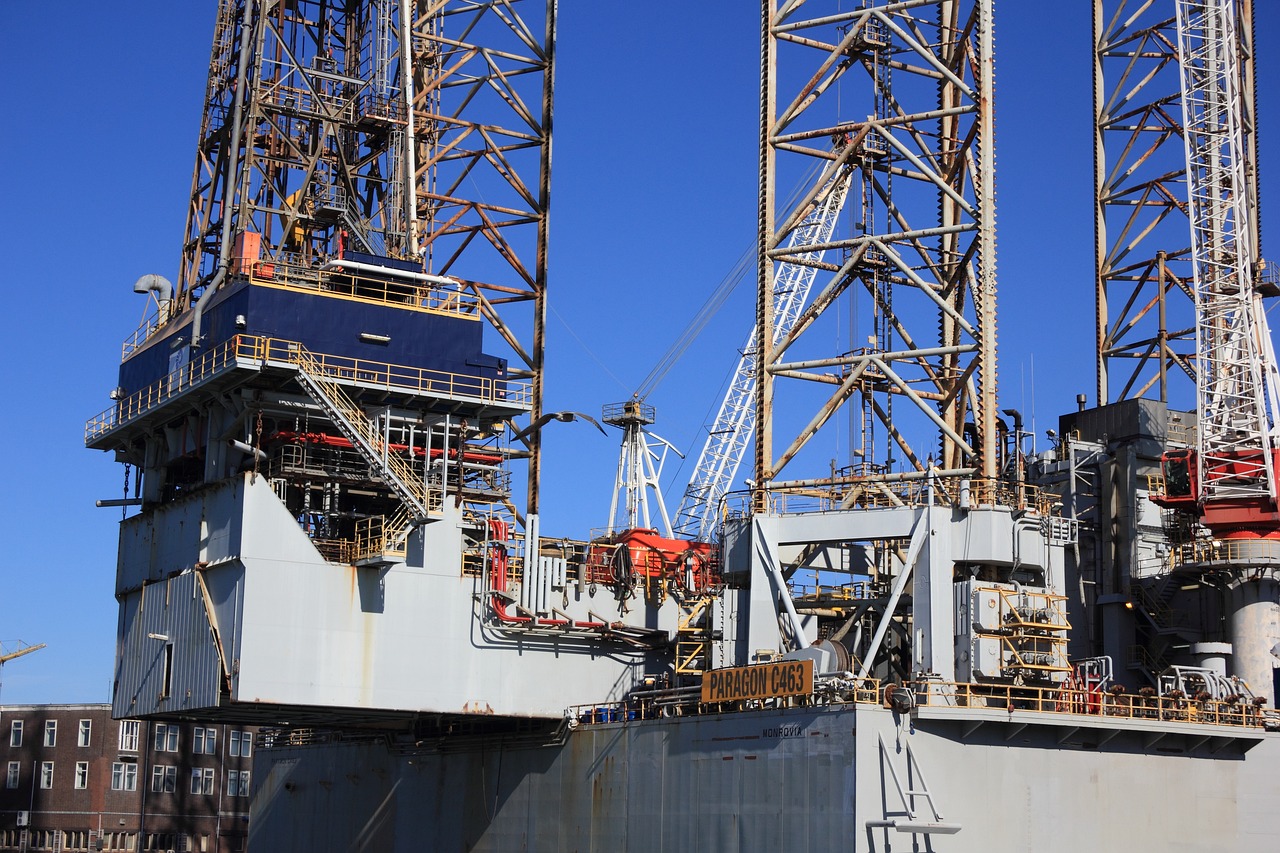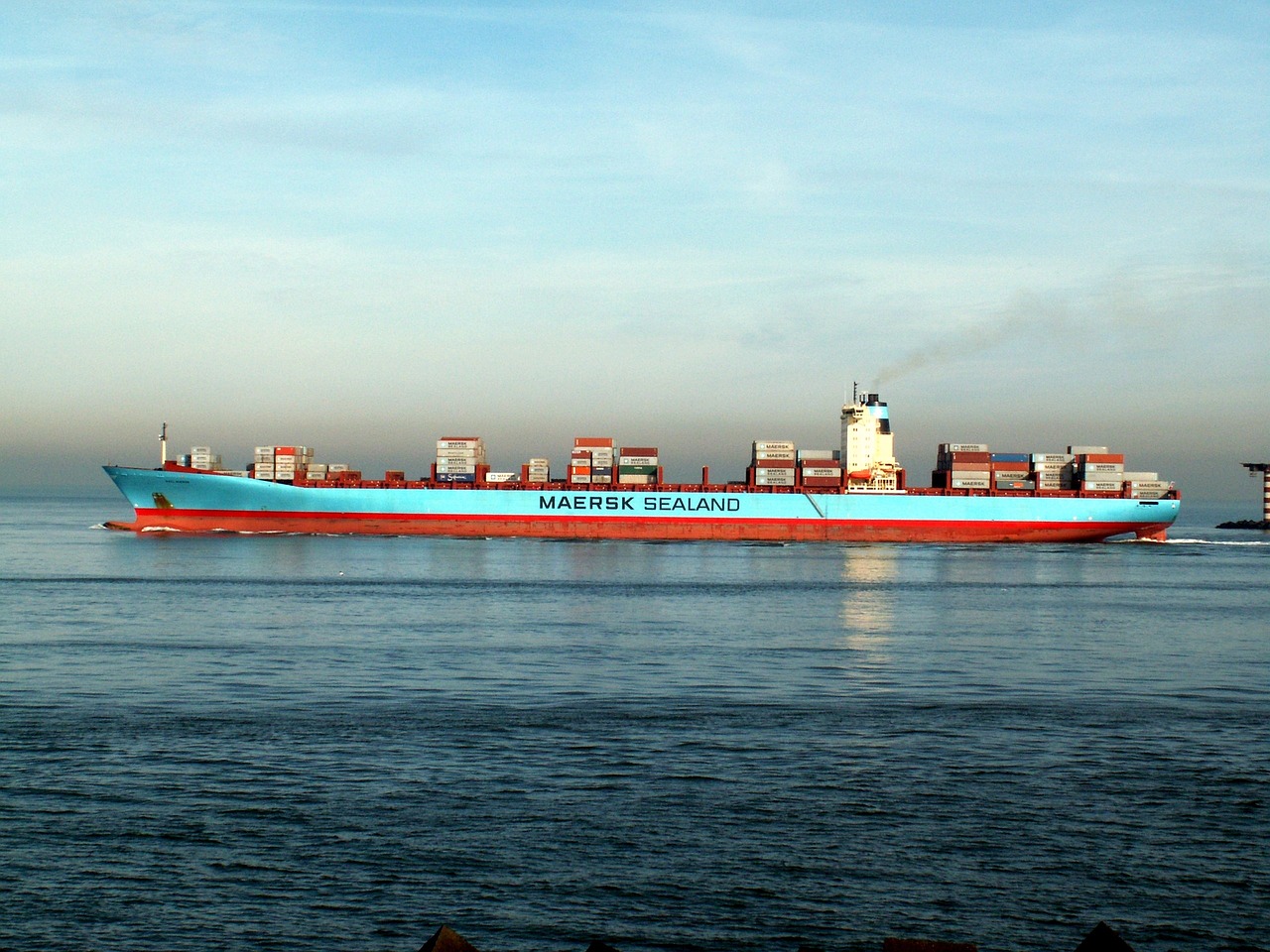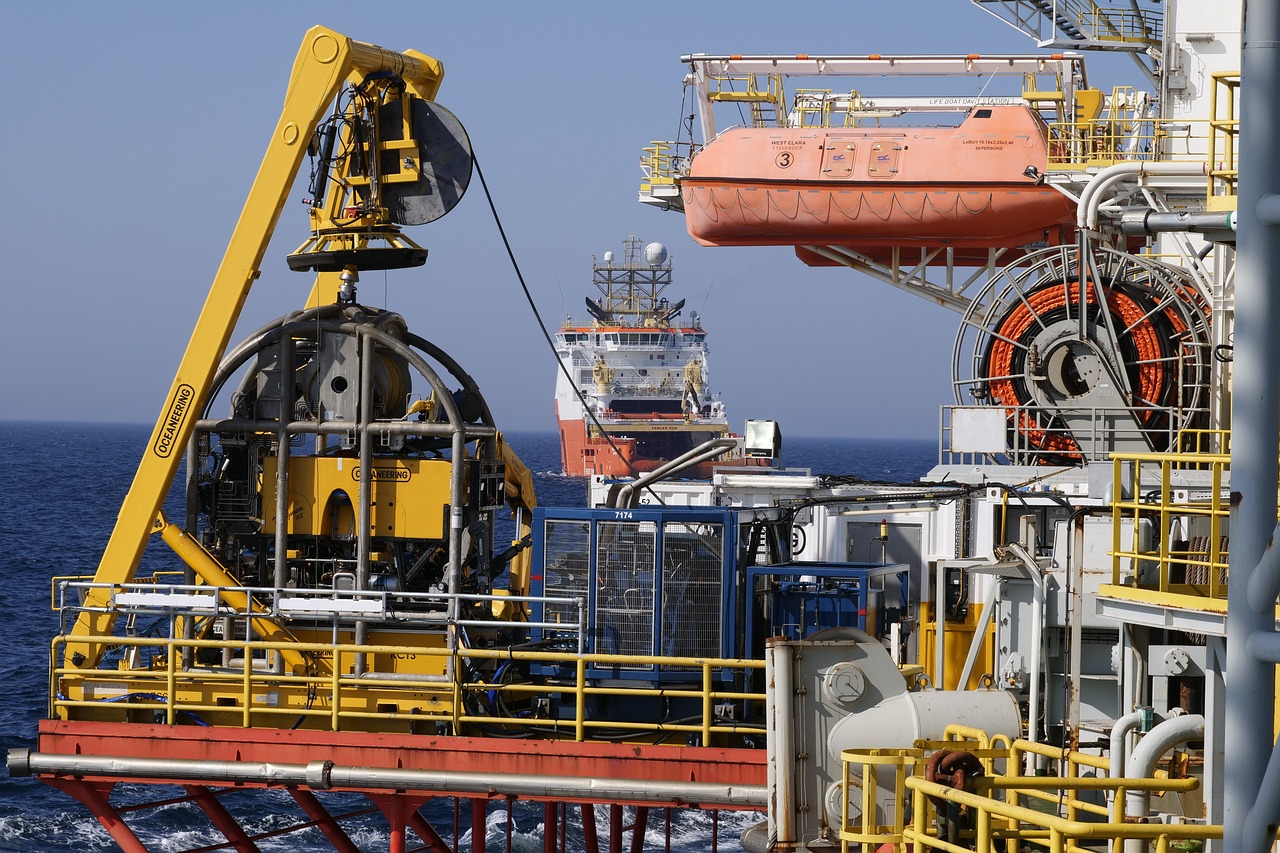Understanding the Ethics of Offshore Drilling
Offshore drilling, a practice that involves extracting oil and gas from beneath the ocean floor, has sparked a heated debate over its ethical implications. As we dive into this complex topic, it's essential to consider not just the immediate benefits but also the long-term consequences that ripple through our environment, economy, and society. The question arises: is the pursuit of energy worth the potential costs? In this article, we'll explore the myriad facets of offshore drilling, from its environmental impact to the economic advantages it offers, while also scrutinizing the responsibilities of corporations involved in this controversial practice.
The environmental consequences of offshore drilling are significant, affecting marine ecosystems and contributing to climate change. The extraction process poses substantial risks to biodiversity and ocean health, disrupting habitats and threatening countless species. For instance, oil spills can devastate marine life, leading to long-term ecological damage that can take years, if not decades, to recover from. Additionally, the noise pollution generated by drilling operations can interfere with the communication and navigation of marine animals, such as whales and dolphins. The delicate balance of ocean ecosystems is at stake, prompting us to ask: can we justify these risks in the name of energy production?
On the flip side, offshore drilling presents various economic advantages that cannot be overlooked. It creates thousands of jobs, stimulates local economies, and contributes to energy independence. However, while the financial benefits are clear, we must weigh them against the potential costs to the environment and local communities. For example, the economic boom that drilling brings can be short-lived if it leads to environmental degradation that ultimately affects tourism and fishing industries. Thus, we find ourselves in a tug-of-war between immediate economic gains and the preservation of our natural resources.
The offshore drilling industry generates thousands of jobs, providing employment opportunities in various sectors such as engineering, construction, and environmental science. These jobs are often well-paying and can significantly boost local economies, particularly in regions that may struggle with high unemployment rates. However, it's crucial to consider the nature of these jobs—are they sustainable in the long run? The reliance on fossil fuels is increasingly being questioned, and as the world shifts towards renewable energy, we must ask ourselves: what happens to these jobs when the tide turns?
Many local communities depend on the offshore industry for their livelihoods. The influx of jobs can lead to economic growth, but it can also create challenges. For instance, increased activity can strain local resources, such as housing and infrastructure. Moreover, the environmental risks associated with drilling can threaten the very industries that support these communities, like fishing and tourism. Striking a balance between economic development and environmental preservation is critical for ensuring community stability and sustainability.
Investing in offshore drilling can yield substantial returns for investors, driven by the demand for energy. However, this potential for profit comes with a caveat: the associated risks, both financial and ethical. Investors must consider the long-term viability of fossil fuels in an increasingly eco-conscious world. As regulatory frameworks tighten and public sentiment shifts, the question remains: is it wise to invest in a sector that may face declining demand in the future?
Regulations play a crucial role in managing offshore drilling practices. Existing laws and policies aim to minimize environmental damage while ensuring safe operational practices. However, the effectiveness of these regulations can vary significantly by region. Some countries have stringent oversight, requiring companies to adhere to rigorous environmental standards, while others may have lax regulations that prioritize economic gain over ecological protection. This inconsistency raises important questions about accountability and the true commitment of governments to safeguarding our oceans.
Companies engaged in offshore drilling have ethical obligations to their stakeholders, including local communities, investors, and the environment. Corporate social responsibility (CSR) plays a pivotal role in shaping industry practices and public perception. It’s not just about profits anymore; it’s about how those profits are made and the impact they have on the world. A commitment to ethical practices can enhance a company’s reputation and foster trust among stakeholders, making CSR not just a moral obligation but also a smart business strategy.
Effective stakeholder engagement is essential for ethical offshore drilling. Companies must involve local communities and environmental groups in decision-making processes to foster transparency and trust. By actively seeking input and addressing concerns, companies can create a more inclusive approach that balances economic benefits with environmental stewardship. This engagement can take many forms, from public consultations to collaborative environmental assessments, ensuring that all voices are heard in the conversation.
Transparency in operations and accountability for environmental impacts are critical in the offshore drilling industry. Companies must report their practices openly, detailing their environmental impact and compliance with regulations. Independent audits can play a significant role in ensuring adherence to ethical standards and environmental laws. By holding themselves accountable, companies can build trust with stakeholders and demonstrate their commitment to responsible practices.
- What are the main environmental risks of offshore drilling? Offshore drilling can lead to oil spills, habitat destruction, and noise pollution, all of which can have devastating effects on marine ecosystems.
- How does offshore drilling impact local economies? While it creates jobs and boosts local economies, it can also strain resources and threaten industries like fishing and tourism.
- What role do regulations play in offshore drilling? Regulations are designed to minimize environmental damage and ensure safe operational practices, but their effectiveness varies by region.
- What is corporate social responsibility in the context of offshore drilling? CSR involves companies taking ethical responsibility for their impact on stakeholders, including local communities and the environment.

Environmental Impact
When we talk about offshore drilling, it's impossible to ignore the profound environmental consequences that come along with it. Imagine a vast underwater world, teeming with life, suddenly disrupted by the relentless hum of machinery and the risk of oil spills. The potential risks to marine ecosystems are not just theoretical; they are real threats that can lead to devastating long-term effects. The delicate balance of ocean health is constantly at stake, and the repercussions can ripple through the entire food chain.
One of the most alarming aspects of offshore drilling is its contribution to climate change. The extraction of fossil fuels not only releases greenhouse gases but also exacerbates the already critical state of our planet. It’s like adding fuel to a fire that’s already raging out of control. The burning of oil and gas leads to increased carbon emissions, which trap heat in the atmosphere and contribute to global warming. The irony is palpable: in our quest for energy independence, we may be sacrificing the very environment we rely on for survival.
Furthermore, the impact on biodiversity is staggering. Marine life is incredibly diverse, with countless species relying on specific habitats that can be easily disrupted by drilling activities. For instance, the noise pollution generated by drilling operations can interfere with the communication and navigation of marine species like whales and dolphins. Additionally, the physical alteration of seabeds can destroy critical habitats for fish and other marine organisms. This disruption can lead to a decline in populations, which not only affects the ecosystem but also the communities that depend on fishing as a source of livelihood.
Moreover, the risk of oil spills cannot be overstated. Despite advancements in technology, accidents happen. When oil spills occur, they can have catastrophic effects on marine environments. The infamous Deepwater Horizon spill is a stark reminder of how quickly things can go wrong, leading to extensive damage that takes years, if not decades, to recover from. The aftermath of such disasters can result in the loss of marine life, contamination of coastlines, and long-term economic impacts on local communities.
To put things into perspective, let’s consider some of the statistics surrounding offshore drilling and its environmental impact:
| Impact Type | Potential Consequences |
|---|---|
| Oil Spills | Destruction of marine habitats, loss of wildlife, economic losses for fishermen |
| Noise Pollution | Disruption of marine life communication, stress on species |
| Greenhouse Gas Emissions | Contribution to climate change, rising sea levels |
| Biodiversity Loss | Decline in fish populations, disruption of food chains |
In conclusion, while offshore drilling may provide short-term economic benefits, the long-term environmental impacts are staggering and cannot be ignored. The health of our oceans and the myriad of life forms they support is at stake. As we continue to weigh the pros and cons of this practice, we must ask ourselves: is the pursuit of energy worth the potential destruction of our planet’s most vital ecosystems? The answer may not be as straightforward as we hope.
- What are the main environmental risks associated with offshore drilling? Offshore drilling poses risks such as oil spills, noise pollution, and greenhouse gas emissions that contribute to climate change.
- How does offshore drilling affect marine biodiversity? It disrupts habitats, leading to declines in fish populations and other marine life, which can have cascading effects on the entire ecosystem.
- What can be done to mitigate the environmental impacts of offshore drilling? Implementing stricter regulations, investing in safer technologies, and increasing transparency can help mitigate these impacts.

Economic Considerations
When we think about offshore drilling, the first thing that often comes to mind is the environmental debate. However, it’s equally crucial to delve into the that surround this practice. Offshore drilling is not just about extracting oil and gas; it’s a complex web of financial implications that can significantly impact local and global economies. While the environmental costs are often highlighted, the economic benefits can also be substantial, making this a multifaceted issue that requires a balanced view.
One of the most significant advantages of offshore drilling is the potential for job creation. Thousands of jobs are generated in various sectors, from engineering to logistics, and even hospitality. This influx of employment opportunities can breathe new life into local economies, especially in regions that may not have many alternatives. For instance, consider a coastal town where offshore drilling operations are established. The demand for skilled labor can lead to a boom in local businesses, from restaurants to housing, as workers relocate to take advantage of these opportunities.
However, the economic benefits extend beyond just job creation. Offshore drilling can also contribute to energy independence. By tapping into domestic resources, countries can reduce their reliance on foreign oil, which can lead to greater national security and stability in energy prices. This aspect is particularly relevant in a world where geopolitical tensions can disrupt supply chains. The economic ripple effect of energy independence can be profound, influencing everything from consumer prices to international relations.
Despite these advantages, it’s essential to consider the potential costs associated with offshore drilling. For instance, the environmental degradation that can result from oil spills or habitat destruction can have long-term economic repercussions. The fishing and tourism industries, which often rely on healthy marine ecosystems, can suffer significantly if drilling leads to pollution. To illustrate this point, let’s look at a table that summarizes some of the potential economic impacts of offshore drilling:
| Economic Impact | Positive Effects | Negative Effects |
|---|---|---|
| Job Creation | Increased employment opportunities | Job losses in fishing and tourism sectors due to environmental damage |
| Energy Independence | Reduced reliance on foreign oil | Potential price volatility due to market fluctuations |
| Local Business Growth | Boost in local economy and services | Possible decline in other local industries |
In addition to these direct economic effects, there are also investment opportunities that offshore drilling presents. Investors often see potential in the oil and gas sector, which can yield substantial returns. However, it’s important to weigh these potential profits against the ethical implications of such investments. Are we prioritizing short-term gains over the long-term health of our planet? This question is crucial as we navigate the complexities of offshore drilling.
Furthermore, the economic landscape surrounding offshore drilling is continually evolving. The rise of renewable energy sources has started to shift the conversation. As countries invest more in sustainable alternatives, the future of offshore drilling may be challenged. This transition could lead to job losses in the traditional oil sector while simultaneously creating opportunities in renewable industries. Therefore, it’s essential to consider how we can balance these economic factors while being mindful of our environmental responsibilities.
In conclusion, while offshore drilling offers various economic benefits, it is crucial to approach this topic with a balanced perspective. The potential for job creation and energy independence are significant, but they must be weighed against the environmental costs and the ethical implications of such practices. As we continue to explore this complex issue, it’s clear that the conversation around offshore drilling is just beginning, and it will require ongoing dialogue and thoughtful consideration.
- What are the main economic benefits of offshore drilling? Offshore drilling can lead to job creation, energy independence, and local business growth.
- How does offshore drilling impact local communities? While it can provide employment and economic stability, it may also pose risks to local industries like fishing and tourism.
- Are there ethical concerns associated with investing in offshore drilling? Yes, investors must consider the potential environmental impact and the long-term sustainability of such practices.
- What is the future of offshore drilling? As renewable energy sources gain traction, the offshore drilling industry may face challenges and shifts in investment priorities.

Job Creation
Offshore drilling is often touted as a significant source of employment, generating thousands of jobs across various sectors. The industry not only provides direct employment opportunities but also stimulates job creation in ancillary services and industries. Think about it: when an offshore drilling operation sets up, it requires a multitude of skilled professionals, ranging from engineers and geologists to support staff like cooks and maintenance workers. This ripple effect extends to local businesses that supply goods and services to the drilling operations, creating a robust economic ecosystem.
In fact, the offshore drilling sector can be a lifeline for communities, particularly in regions where traditional industries have declined. For example, in coastal towns where fishing and tourism may not provide sufficient income, offshore drilling can be a game-changer. The jobs created in this sector often come with competitive wages, which can elevate the standard of living for many families. According to recent statistics, the offshore oil and gas industry supports over 300,000 jobs in the United States alone, contributing significantly to both local and national economies.
However, it’s essential to recognize that while job creation is a compelling argument for offshore drilling, it does not come without its challenges. The jobs in this sector can be physically demanding and may require workers to spend extended periods away from home. Moreover, the industry is subject to fluctuations in oil prices, which can lead to job instability. For instance, during periods of low oil prices, companies may reduce their workforce or even halt operations, leaving many without jobs. This volatility raises questions about the sustainability of relying heavily on offshore drilling for employment.
To illustrate the economic impact of job creation in offshore drilling, consider the following table that highlights the average salaries and job roles commonly found in the industry:
| Job Role | Average Salary | Job Description |
|---|---|---|
| Drilling Engineer | $100,000 | Responsible for designing and implementing drilling plans. |
| Geologist | $90,000 | Studies the earth's structure to locate oil and gas deposits. |
| Roustabout | $50,000 | Entry-level position responsible for manual labor on drilling rigs. |
| Safety Manager | $95,000 | Ensures compliance with safety regulations and protocols. |
In conclusion, while the job creation aspect of offshore drilling is undeniably significant, it’s crucial to approach this topic with a balanced perspective. The economic benefits must be weighed against the potential environmental risks and the long-term sustainability of these jobs. As we navigate the complexities of offshore drilling, it’s essential for stakeholders to engage in meaningful discussions about how to create a future where job creation does not come at the expense of our planet.
- What types of jobs are available in offshore drilling? Offshore drilling offers a range of jobs, including engineering, geology, safety management, and support roles.
- Are offshore drilling jobs safe? While safety measures are in place, offshore drilling can be hazardous. Companies must adhere to strict safety regulations to protect their workers.
- How does offshore drilling impact local economies? Offshore drilling can boost local economies by creating jobs and generating revenue for local businesses.
- What happens to jobs if oil prices drop? Job stability in offshore drilling can be affected by fluctuations in oil prices, leading to potential layoffs or reduced hiring.

Local Communities
Local communities are often at the heart of the offshore drilling debate, as they frequently rely on the industry for their livelihoods. Imagine a small coastal town where fishing and tourism are the primary sources of income. When offshore drilling companies set up operations nearby, they can bring a wave of economic activity that may seem like a blessing at first. However, the reality is a complex tapestry of benefits and challenges that these communities must navigate.
On one hand, the influx of jobs and investment can invigorate local economies. Offshore drilling creates a demand for various services, from catering to logistics, leading to a spike in employment opportunities. This can be particularly significant in regions where job options are limited. For example, according to recent studies, areas with active offshore drilling operations have seen a 20% increase in local employment rates compared to those without such activities. However, it’s crucial to ask ourselves: at what cost does this economic growth come?
The environmental risks associated with offshore drilling can pose serious threats to the very fabric of these communities. Oil spills, habitat destruction, and pollution can lead to a decline in fish populations and deter tourists, ultimately undermining the local economy. The balance between economic gain and environmental preservation is a tightrope that these communities must walk. It’s a bit like a seesaw; too much weight on one side can send the whole thing crashing down.
Moreover, the social dynamics within these communities can shift dramatically as the offshore drilling industry expands. New workers may move in, leading to an increase in population and changes in local culture. This rapid transformation can create tensions among long-time residents and newcomers, making it essential for local leaders to foster an inclusive environment. The importance of community engagement cannot be overstated; local voices must be heard in discussions about drilling operations and their impacts. Companies should actively seek to involve residents in decision-making processes, ensuring that their concerns are addressed and that they feel a sense of ownership over the changes happening in their backyards.
In conclusion, while offshore drilling can offer significant economic opportunities for local communities, it also brings substantial risks that must be carefully managed. The challenge lies in balancing these two sides—ensuring that economic benefits do not come at the expense of environmental health and community well-being. It’s a delicate dance that requires cooperation, transparency, and a commitment to sustainable practices.
- What are the main economic benefits of offshore drilling for local communities?
Offshore drilling can lead to job creation, increased local spending, and enhanced infrastructure development. - How does offshore drilling impact the environment?
It poses risks such as oil spills, habitat destruction, and pollution, which can harm marine ecosystems and local economies reliant on fishing and tourism. - What role do local communities play in offshore drilling decisions?
Local communities should be involved in decision-making processes to ensure their concerns and needs are addressed, fostering transparency and trust. - Can offshore drilling coexist with environmental preservation?
Yes, with strict regulations, responsible practices, and community engagement, it is possible to balance economic benefits with environmental protection.

Investment Opportunities
When we talk about offshore drilling, it’s hard not to think about the vast it presents. Picture this: a world where energy independence is not just a dream but a reality, driven by the oil and gas extracted from beneath the ocean's surface. Investors are often drawn to the potential for substantial returns in this sector, as the demand for energy continues to rise globally. However, with great opportunity comes great responsibility, and understanding the landscape of offshore drilling investments is crucial.
Investing in offshore drilling can be likened to navigating a vast ocean; while there are lucrative waves to ride, there are also hidden reefs that could sink your ship if you're not careful. The potential financial gains are enticing, but they come with inherent risks, including environmental regulations and the volatility of oil prices. This means that investors must not only consider the potential profits but also the ethical implications of their investments.
To give you a clearer picture, let’s break down the key factors that make offshore drilling a compelling yet complex investment opportunity:
- High Returns: Offshore drilling projects can yield high returns on investment, especially when oil prices are favorable.
- Technological Advancements: Innovations in drilling technology have made it possible to extract resources more efficiently and safely than ever before.
- Global Demand: With the world’s energy needs growing, the demand for oil and gas continues to drive investment into offshore projects.
- Regulatory Changes: Investors must stay informed about changing regulations that could impact profitability.
However, it's essential to weigh these opportunities against the potential costs. The environmental impact of offshore drilling can lead to significant backlash from the public and regulatory bodies, which may affect the long-term viability of such investments. Companies that do not adhere to strict environmental standards may face legal challenges, resulting in financial losses for investors. Thus, ethical investing in this sector involves a careful balance between pursuing profits and recognizing the broader implications of one’s investment choices.
Moreover, investors should consider engaging with companies that prioritize corporate social responsibility (CSR) and sustainable practices. This not only helps mitigate risks but also aligns with the growing trend of socially conscious investing. By choosing to invest in companies that are transparent about their operations and committed to minimizing environmental impacts, investors can contribute positively to both the economy and the planet.
In conclusion, while offshore drilling presents significant investment opportunities, it is vital for investors to approach this sector with caution. Understanding the risks, staying informed about regulatory changes, and prioritizing ethical considerations can lead to successful and responsible investments in this complex industry.
- What are the primary risks associated with investing in offshore drilling? The main risks include environmental regulations, fluctuating oil prices, and potential legal challenges.
- How can I ensure that my investments are ethically sound? Look for companies with strong corporate social responsibility practices and transparent operations.
- What role does technology play in offshore drilling investments? Advances in technology can improve efficiency and reduce environmental impacts, making investments more attractive.
- Is offshore drilling still a viable investment option? Yes, as long as investors conduct thorough research and consider the associated risks and ethical implications.

Regulatory Frameworks
The regulation of offshore drilling is a complex and multifaceted issue that involves a variety of laws and policies aimed at safeguarding the environment while promoting economic activity. Governments around the world have established regulatory frameworks to ensure that offshore drilling operations are conducted safely and responsibly. These frameworks typically encompass a range of regulations that address environmental protection, safety standards, and operational procedures.
In many countries, regulatory bodies are tasked with overseeing offshore drilling activities. These organizations are responsible for issuing permits, conducting inspections, and enforcing compliance with environmental laws. For instance, in the United States, the Bureau of Ocean Energy Management (BOEM) plays a crucial role in managing offshore resources while ensuring that environmental concerns are addressed. Their regulations require companies to conduct thorough environmental assessments before any drilling can commence, which helps identify potential risks and mitigate them effectively.
One of the key components of these regulatory frameworks is the requirement for Environmental Impact Assessments (EIAs). These assessments are designed to evaluate the potential effects of drilling on marine ecosystems and local communities. Companies must submit detailed reports outlining how they plan to minimize environmental damage, and these reports are often subject to public scrutiny. This process encourages transparency and accountability, as stakeholders, including local communities and environmental groups, can voice their concerns and influence decision-making.
Additionally, regulations often mandate the implementation of safety measures to prevent accidents and spills, which can have devastating consequences for marine life and coastal economies. Companies are required to develop and adhere to contingency plans that outline their response strategies in the event of a spill. These plans must be regularly updated and tested to ensure their effectiveness, reflecting the evolving nature of offshore drilling technologies and practices.
Despite the existence of these frameworks, challenges remain. Regulatory loopholes and inconsistent enforcement can undermine the effectiveness of laws designed to protect the environment. Furthermore, the rapid pace of technological advancement in the offshore drilling sector often outstrips existing regulations, leading to calls for more adaptive and forward-thinking policies. As the industry continues to evolve, it is crucial for regulatory bodies to engage with stakeholders and incorporate scientific research to enhance the robustness of these frameworks.
In conclusion, while regulatory frameworks are essential in managing offshore drilling activities, their effectiveness largely depends on consistent enforcement, stakeholder engagement, and adaptability to new challenges. As the world grapples with energy demands and environmental concerns, the role of regulations in ensuring responsible offshore drilling practices cannot be overstated.
- What are the main regulatory bodies overseeing offshore drilling?
In the United States, the Bureau of Ocean Energy Management (BOEM) is a key regulatory body, while other countries have their respective agencies responsible for managing offshore resources.
- What is an Environmental Impact Assessment (EIA)?
An EIA is a process used to evaluate the potential environmental effects of a proposed drilling project, ensuring that companies plan for minimizing harm to ecosystems.
- How do regulations ensure safety in offshore drilling?
Regulations require companies to implement safety measures, conduct regular inspections, and develop contingency plans to address potential spills or accidents.
- What challenges do regulatory frameworks face?
Challenges include regulatory loopholes, inconsistent enforcement, and the need for regulations to keep pace with technological advancements in the offshore drilling sector.

Corporate Social Responsibility
When it comes to offshore drilling, the conversation doesn't just revolve around oil and gas; it also dives deep into the ethical obligations that companies have towards their stakeholders. Corporate Social Responsibility (CSR) is not just a buzzword; it’s a vital aspect of how these companies operate within their communities and the environment. The essence of CSR in the offshore drilling industry lies in balancing profit-making with the welfare of the planet and its people. Companies must recognize that their actions have far-reaching consequences, and they should act responsibly to mitigate any negative impacts.
One of the most significant responsibilities that these companies hold is towards the local communities that often rely on them for their livelihoods. For instance, in areas where offshore drilling takes place, residents may depend on the industry for jobs and economic stability. However, this reliance can create a precarious situation where the community's well-being is tied to the health of the drilling operations. Thus, companies must engage with these communities actively, ensuring that their operations do not disrupt local economies or harm the environment. This engagement can take many forms, including:
- Regular community meetings to discuss plans and gather feedback.
- Investment in local infrastructure and education.
- Partnerships with local businesses to boost economic growth.
But it doesn’t stop there. Transparency and accountability are the cornerstones of CSR. Companies engaged in offshore drilling must be open about their operational practices and the potential environmental impacts. This transparency can take shape in various ways, such as:
| Transparency Measures | Description |
|---|---|
| Public Reporting | Regularly publishing environmental impact reports and operational updates. |
| Independent Audits | Engaging third-party organizations to evaluate environmental practices. |
| Community Feedback | Creating channels for local residents to voice concerns and suggestions. |
By implementing these measures, companies can build trust with their stakeholders, demonstrating that they are committed to ethical practices. Moreover, this transparency not only fosters community trust but also enhances the company’s reputation, which can be a significant asset in today’s socially conscious market.
Ultimately, the ethical implications of offshore drilling extend far beyond just the environmental impact. Companies must recognize that they are part of a larger ecosystem that includes local communities, the environment, and even future generations. By embracing CSR, they can contribute positively to society while still pursuing their business objectives. This balance is crucial in an age where consumers are increasingly looking to support companies that prioritize ethical practices. So, the question remains: how will these companies rise to the challenge of being responsible stewards of both the environment and the communities they operate in?
Q: What is Corporate Social Responsibility (CSR)?
A: CSR refers to the ethical obligation of companies to contribute positively to society, the environment, and the economy while conducting their business activities.
Q: Why is CSR important in offshore drilling?
A: CSR is crucial in offshore drilling as it helps ensure that companies operate sustainably, protect local communities, and minimize environmental impacts.
Q: How can companies engage with local communities?
A: Companies can engage with local communities through regular meetings, partnerships, and investments in local initiatives that promote economic growth and environmental sustainability.
Q: What role does transparency play in CSR?
A: Transparency is essential for building trust with stakeholders, as it allows companies to openly communicate their practices, challenges, and commitments to ethical operations.

Stakeholder Engagement
Effective is essential for ethical offshore drilling practices. Companies operating in this sector must recognize that their actions can significantly impact various groups, including local communities, environmental organizations, and government agencies. Engaging these stakeholders is not just a matter of compliance; it's about building trust and fostering a collaborative approach to energy development. When stakeholders feel heard and valued, it can lead to better decision-making and more sustainable practices.
To achieve meaningful engagement, companies should adopt a proactive strategy that includes regular communication and consultation with stakeholders. This could involve organizing community forums, conducting surveys, and establishing advisory panels that include representatives from local communities and environmental groups. By doing so, companies can gain valuable insights into community concerns and expectations, which can guide their operational decisions.
Furthermore, transparency is a critical component of stakeholder engagement. Companies should openly share information about their drilling operations, potential environmental impacts, and safety measures in place. This transparency not only helps build trust but also empowers stakeholders to participate actively in discussions about project developments. For example, when stakeholders are informed about the environmental safeguards a company employs, they are more likely to support the project, provided they feel their concerns are adequately addressed.
In addition to fostering trust, effective stakeholder engagement can lead to innovative solutions. When diverse perspectives come together, they can identify potential challenges and collaborate on strategies to mitigate them. For instance, local fishermen may provide insights into the best practices for minimizing disruptions to marine life, ultimately benefiting both the industry and the community.
Moreover, companies should consider the long-term implications of their engagement strategies. Building lasting relationships with stakeholders can enhance a company's reputation and lead to a social license to operate. This means that not only do they have the legal right to drill, but they also have the community's support, which can be invaluable in navigating regulatory hurdles and public opposition.
In summary, stakeholder engagement is a multifaceted process that requires commitment and genuine effort from companies involved in offshore drilling. By prioritizing communication, transparency, and collaboration, these companies can not only mitigate risks but also create a more sustainable and ethically responsible approach to energy production.
- What is stakeholder engagement in offshore drilling?
Stakeholder engagement refers to the process of involving various groups, such as local communities, environmental organizations, and government bodies, in discussions and decisions related to offshore drilling projects. - Why is transparency important in stakeholder engagement?
Transparency helps build trust between companies and stakeholders, allowing for open communication about operational practices and potential environmental impacts. - How can companies effectively engage with stakeholders?
Companies can engage stakeholders by organizing community forums, conducting surveys, and establishing advisory panels that include diverse representatives. - What are the benefits of stakeholder engagement?
Effective stakeholder engagement can lead to better decision-making, innovative solutions, enhanced company reputation, and a social license to operate.

Transparency and Accountability
When it comes to offshore drilling, transparency and accountability are not just buzzwords; they are essential components of ethical practice that can significantly influence public perception and trust. Companies involved in offshore drilling operations must recognize that their actions have far-reaching impacts—not only on the environment but also on local communities and the global economy. By adopting transparent practices, these companies can foster a culture of trust and responsibility, which is crucial in today's environmentally conscious world.
So, what does transparency in offshore drilling look like? For starters, it involves open communication about operational practices, environmental assessments, and any incidents that may occur. Companies should provide comprehensive reports detailing their drilling activities, environmental impact assessments, and measures taken to mitigate risks. This information should be easily accessible to the public, allowing stakeholders to make informed decisions and hold companies accountable for their actions.
Moreover, accountability goes hand-in-hand with transparency. It’s about recognizing the consequences of one’s actions and being prepared to face the repercussions. This means that companies must not only adhere to existing regulations but also be willing to undergo independent audits to verify compliance with environmental standards. Such audits can serve as an important check on corporate behavior, ensuring that companies are not only meeting their legal obligations but also fulfilling their ethical responsibilities.
To illustrate the importance of these concepts, consider the following table that outlines the potential benefits of transparency and accountability in offshore drilling:
| Benefits | Description |
|---|---|
| Enhanced Trust | Open reporting fosters trust among stakeholders, including local communities and environmental groups. |
| Reduced Risks | Transparent practices can help identify potential risks early, allowing for proactive measures to be taken. |
| Improved Reputation | Companies that prioritize transparency are often viewed more favorably, enhancing their reputation. |
| Informed Decision-Making | Stakeholders can make better decisions when they have access to complete and accurate information. |
In addition to these benefits, engaging in transparent and accountable practices can lead to a more sustainable approach to offshore drilling. By involving local communities and environmental organizations in the decision-making process, companies can better understand the concerns of those most affected by their operations. This engagement not only helps to build trust but also ensures that the voices of stakeholders are heard and considered.
Ultimately, the call for transparency and accountability in offshore drilling is not just a regulatory requirement; it is a moral obligation. As we move forward in an era where environmental sustainability is paramount, companies must recognize that their operational practices will be scrutinized more than ever. By committing to transparency and accountability, they can pave the way for a more responsible and ethical future in offshore drilling.
- What is offshore drilling? Offshore drilling is the process of extracting petroleum and natural gas from beneath the seabed.
- Why is transparency important in offshore drilling? Transparency helps build trust with stakeholders and ensures that companies are held accountable for their environmental impact.
- What are the risks associated with offshore drilling? Risks include oil spills, habitat destruction, and potential harm to marine life.
- How can companies ensure accountability? Companies can ensure accountability through independent audits and by adhering to regulatory requirements.
Frequently Asked Questions
- What are the primary environmental concerns associated with offshore drilling?
Offshore drilling poses significant threats to marine ecosystems, including oil spills that can devastate local wildlife and habitats. The process can disrupt the delicate balance of oceanic biodiversity, leading to long-term consequences for both marine life and coastal communities.
- How does offshore drilling contribute to job creation?
The offshore drilling industry is a major source of employment, generating thousands of jobs across various sectors such as engineering, logistics, and environmental management. These jobs not only provide livelihoods for individuals but also contribute to the economic stability of local communities that rely on the industry.
- What regulatory frameworks govern offshore drilling practices?
Offshore drilling is subject to a range of regulations designed to minimize environmental impact and ensure safety. These laws vary by country and often include requirements for environmental assessments, safety protocols, and emergency response plans to mitigate potential risks associated with drilling activities.
- How can companies demonstrate corporate social responsibility in offshore drilling?
Companies can show corporate social responsibility by engaging with local communities, being transparent about their operations, and actively working to minimize environmental impacts. This includes involving stakeholders in decision-making processes and committing to sustainable practices that protect both the environment and community interests.
- What are the potential economic benefits of offshore drilling?
Offshore drilling can lead to substantial economic benefits, including increased energy independence and significant revenue generation for governments. Additionally, it can attract investment opportunities and foster growth in related industries, creating a ripple effect that boosts local and national economies.
- What role does transparency play in offshore drilling operations?
Transparency is crucial in offshore drilling as it builds trust with stakeholders and the public. Companies must openly report their practices, environmental impacts, and compliance with regulations. Independent audits can further enhance accountability, ensuring that companies adhere to ethical standards and environmental commitments.



















